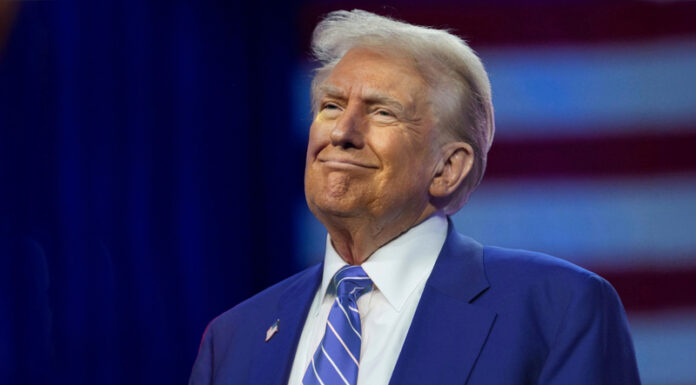President Donald Trump filed a $15 billion defamation lawsuit against The New York Times on Monday, September 16, 2025, targeting the newspaper and four of its reporters over coverage of his 2024 presidential campaign. The suit was filed in U.S. District Court for the Middle District of Florida, where Trump resides.
The lawsuit names The New York Times Company, reporters Susanne Craig, Russ Buettner, Peter Baker, and Michael S. Schmidt, as well as Penguin Random House publishing company. The suit accuses the newspaper of attempting to damage Trump’s business reputation, undermine his 2024 campaign, and prejudice judges and juries against him.
Trump announced the lawsuit in a post on Truth Social early Tuesday, calling the Times one of the worst and most degenerate newspapers in the nation’s history. He alleged the newspaper had engaged in decades of lying about him, his family, his business, and his political movement. Trump stated that “The New York Times has been allowed to freely lie, smear, and defame me for far too long, and that stops, NOW!”
The 85-page lawsuit specifically targets several pieces of reporting, including a book titled “Lucky Loser: How Donald Trump Squandered His Father’s Fortune and Created the Illusion of Success,” written by Craig and Buettner and published by Penguin Random House. The suit characterizes the book as false, malicious, and defamatory.
The filing also challenges three articles published within a two-month period before the 2024 election. These include a piece by Peter Baker on October 20 headlined “For Trump, a Lifetime of Scandals Heads Toward a Moment of Judgment,” and an article by Michael S. Schmidt two days later featuring an interview with Trump’s former chief of staff John Kelly, titled “As Election Nears, Kelly Warns Trump Would Rule Like a Dictator.”
Trump’s legal team contends that the newspaper maliciously promoted false narratives about his business success, particularly regarding his role on “The Apprentice” television show. The lawsuit disputes claims that producer Mark Burnett transformed Trump into a celebrity, asserting that Trump was already a mega-celebrity and successful businessman before the show.
The suit characterizes The Times as a full-throated mouthpiece for the Democratic Party and accuses it of industrial-scale defamation against political opponents. Trump criticized the newspaper’s editorial endorsement of Democratic candidate Kamala Harris, though legal experts note that endorsing another candidate does not constitute defamation.
The lawsuit seeks no less than $15 billion in compensatory damages, an amount that exceeds the entire market capitalization of The New York Times Company. It also requests unspecified punitive damages. Trump claims the reporting damaged his unique brand and business interests, including his media company’s stock value, causing reputational injury worth billions of dollars.
The filing includes correspondence between Trump’s lawyers and representatives from both The Times and Penguin Random House from October. Trump’s legal team demanded the newspaper cease making false and defamatory statements, while Times newsroom lawyer David McCraw defended the reporting. McCraw characterized Trump’s complaints as principled on the troubling notion that reporting unfavorable facts about a presidential candidate constitutes sabotage rather than contributing to democratic discourse.
The New York Times immediately rejected the lawsuit’s claims, stating it has no merit and represents an attempt to stifle independent reporting. Spokesman Charlie Stadtlander indicated the newspaper would not be deterred by intimidation tactics and would continue pursuing facts without fear or favor while defending journalists’ First Amendment rights.
Penguin Random House senior vice president and associate general counsel Carolyn K. Foley responded that the authors’ unfavorable view of Trump’s career does not provide foundation for a defamation claim. The publisher stated it stands by the book and its authors.
This lawsuit represents the latest in a series of legal actions Trump has filed against media organizations. He previously sued ABC News and CBS News’ “60 Minutes,” with both cases settled out of court by their parent companies. In July 2024, Trump filed a $10 billion lawsuit against The Wall Street Journal and media mogul Rupert Murdoch over reporting on his alleged ties to Jeffrey Epstein. Paramount agreed to settle a $20 billion lawsuit over a “60 Minutes” interview with Harris, paying Trump $16 million.
First Amendment experts have described Trump’s litigation strategy as an attempt to silence critical news coverage through nuisance lawsuits. The Committee to Protect Journalists observed that such defamation suits send a chilling message and can entangle news media in time-consuming and costly legal processes. Legal analysts noted that public figures like Trump must prove actual malice in defamation cases, meaning defendants knew statements were false or acted with reckless disregard for truth.








